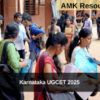The Shala SIDDI (School Standards and Evaluation Framework) Program is a transformative initiative launched by the National Institute of Educational Planning and Administration (NIEPA) under the Ministry of Education, Government of India. It aims to improve the quality of school education through a comprehensive self-evaluation process that enables schools to assess their performance and identify areas for improvement.
The core objective of the Shala SIDDI Program is to empower schools, particularly government and aided schools, to take ownership of their development by evaluating themselves on key performance indicators. These indicators include areas such as student learning outcomes, teacher performance, school leadership, community participation, infrastructure, inclusive practices, and overall school environment. The tool is designed to be participatory, inclusive, and evidence-based, allowing for a holistic understanding of a school’s strengths and challenges.
One of the unique features of Shala SIDDI is its community-centered approach. School Management Committees (SMCs), teachers, headmasters, students, and parents are all active participants in the self-assessment process. This inclusivity builds transparency, trust, and shared accountability, ensuring that the entire school ecosystem is involved in its development journey.
The process begins with training teachers and headmasters on how to conduct the self-evaluation using the Shala SIDDI framework. After gathering data and completing the evaluation, schools develop a School Development Plan (SDP) to address the identified gaps and improve performance. This plan becomes the foundation for continuous monitoring and targeted interventions by school authorities and local education officials.
In Karnataka, the Shala SIDDI initiative has been implemented effectively across districts with active support from the School Quality Assessment and Accreditation Cell (SQAAC). Many schools have reported significant improvements in student learning, teacher motivation, and parental involvement since adopting the program.
Moreover, Shala SIDDI aligns with the goals of the National Education Policy (NEP) 2020, which emphasizes school quality, autonomy, and accountability. By institutionalizing a culture of reflection, evidence-based planning, and continuous improvement, the program plays a vital role in ensuring equitable and quality education for all.
In conclusion, the Shala SIDDI Program is more than just an evaluation tool — it is a movement toward self-reliant and accountable schools. It inspires school communities to aspire for excellence and take concrete, informed steps to make meaningful changes that benefit every learner.
MULTIPLE CHOICE QUESTIONS WITH KEY
| MCQ | CLICK HERE |
RESOURCE HANDBOOKS
| Handbook 1 | CLICK HERE |
| Handbook 2 | CLICK HERE |













































